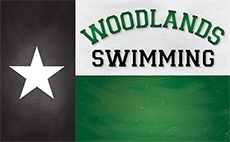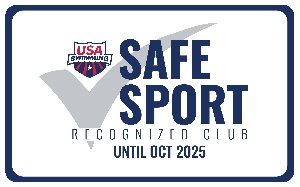Basic Nutrition Information
Carbohydrate – One of the three main macronutrients comprising your diet. Every gram of carbohydrates consists of 4 calories. There are two forms of carbs: simple carbs and complex carbs. Simple carbs are sugars and are found in things like table sugar, honey, candy, syrup, soda, and many sports drinks. Complex carbs are basically made up of many sugar molecules, dietary starch, and fiber. Because they are more complex, it takes the body longer to break them down, providing a more constant source of energy. Complex carbs include foods such as fruits, vegetables, pasta, beans, and lentils. Aim to have complex carbs at every meal and snack throughout the day. This will help ensure a constant energy supply.
Fat – One of the three main macronutrients comprising your diet. Every gram of fat contains roughly 9 calories. The primary function of fat is as an energy reserve. The body stores excess calories as fat, and then uses this as a source of energy after carbohydrates. Fat also helps the body to absorb fat soluble vitamins. There are many types of fats, some of which are healthy, while others are not. You should try and avoid trans fats which are mostly created by food companies to increase the shelf life of foods. You should also avoid triglycerides which are associated with coronary artery disease. While you should make sure to include polyunsaturated fats which have been shown to have an impact on blood cholesterol levels and decreased risk of cardiovascular disease. Polyunsaturated fats can be found in sunflower seed, walnuts, flaxseeds, salmon, tuna, herring, mackerel, and trout.
Protein – One of the three main macronutrients comprising your diet. Every gram of protein contains roughly 4 calories. It is mainly found in animal products such as meat, milk, and cheese, but can also be found in plant sources such as nuts and legumes. Proteins are composed of amino acids. Amino acids are the building blocks for proteins, and proteins are the building blocks for muscle. The Institute of Medicine recommends 10 -35 percent of calories to come from protein, with athletes being on the higher end of that percentage. Swimmers tend to focus more on carbohydrate intake and less on protein intake. As a result, protein deficiency appears, with its inevitable negative effects on performance and health. Swimmers, especially those doing longer-duration events and/or multiple events during a meet, need considerable amounts of protein, far above the normal adult RDA. Maintenance, repair, and growth of lean muscle mass, as well as optimum immune system function, depend on adequate amounts of dietary protein.
Protein Deficiency - Low dietary protein intake causes an increase in recovery time, muscle weakness and it can also suppress the immune system. Chronic protein deficiency will cancel the beneficial effects of your workouts and leave you susceptible to fatigue, lethargy, and anemia. Athletes with over training syndrome tend to have protein deficiency.
Protein Sources
- Top or bottom round steak (23 grams of protein per 3-ounce serving)
- Lean ground beef (18 grams per 3-ounce serving)
- Pork chops (26 grams per 3-ounce serving)
- Skinless chicken breast (24 grams per 3-ounce serving)
- Turkey breast (24 grams per 3-ounce serving)
- Sockeye salmon (23 grams per 3-ounce serving)
- Yellowfin tuna (25 grams per 3-ounce serving)
- Greek yogurt (23 grams per 8-ounce serving)
- Cottage cheese (14 grams per half-cup serving)
- Eggs (6 grams per large egg)
- 2 percent milk (8 grams per cup)
- Some canned foods, like sardines, anchovies and tuna average around 22 grams of protein per serving
- Navy beans (20 grams per cup)
- Lentils (13 grams per quarter-cup)
- Peanut butter (8 grams per 2 tablespoons)
- Mixed nuts (6 grams per 2-ounce serving)
- Quinoa (8 grams per 1-cup serving)
- Edamame (8 grams per half-cup serving)
- Soba noodles (12 grams per 3-ounce serving)
Nutrition Tips
Carbohydrates are your friend! Carbohydrates are an athlete's main source of fuel. Your body converts the carbs to glucose and stores it in your muscles in the form of glycogen. When you exercise this glycogen is what fuels your muscles. It takes about 90 minutes of exercise to deplete this store of glycogen
Get enough protein. While protein is not going to fuel your muscles during a workout, it is going to help them repair and get stronger after your workout. It is ideal to have some form of protein within 20-30 minutes of finishing your workout, especially if it involves weight lifting.
Milk is a great source of protein following a workout as it provides a good balance of carbs and protein.
Go easy on the fat. A majority of people obtain enough fat from a healthy balanced diet that includes foods such as nuts, avocados, olives, and fatty fish. Try to avoid too much fat the day before and the day of a swim meet as it tends to upset your stomach and make you feel sluggish.
Hydrate, Hydrate, Hydrate. Do not wait until you are thirsty before you drink water. Thirst is a sign of dehydration and ideally you never want to get to that point. It is easy to forget to drink water when you are swimming because you underestimate the amount that you are sweating.
Make sure to replenish your electrolytes as well. When you sweat you are losing water and electrolytes. Electrolytes are what help your body transmit nerve signals and you can get disoriented if your levels get too low. So while it is great to reach for that water, if you are sweating a lot, it is great to reach for a sports drink.
What To Eat During a Swim Meet
The day before a meet, make sure to be eating meals that contain complex carbs. While it is not necessary to carb load before a meet, you do want to make sure that your glycogen stores are full. Avoid eating big meals or overeating the night before a swim meet as this may leave you feeling sluggish and lethargic the next day. Try to stick to foods that you eat in your normal diet. Eating foods that your body is not used to may leave your stomach feeling upset the next day.
The morning of a swim meet, make sure to eat breakfast. No matter how early you need to get up to head to the meet, you need to start your body off the right way for the day. Try to stick with easily digestible foods such as bananas, yogurt, toast with jam, oatmeal, or a low sugar cereal with milk.
During the meet it is a good idea to try and eat right after a race to give your body as much time as possible to digest the food before your next race. Foods that are high in fat or simple sugar should be avoided on race day and instead try to fuel yourself with complex carbs. Here is a list of some good snacks:
- Water, diluted fruit juice with a pinch of salt or a sports drink
- Pasta salad
- Plain sandwiches e.g. chicken, tuna, cheese with salad, banana, peanut butter
- Bananas, grapes, apples, plums, pears
- Dried fruit e.g. raisins, apricots, mango
- Smoothies
- Crackers and rice cakes with bananas and/or honey
- Mini-pancakes, fruit buns
- Cereal bars, fruit bars, sesame snaps
- Yoghurt and yoghurt drinks
- Small bags of unsalted nuts e.g. peanuts, cashews, almonds
- Prepared vegetable crudités e.g. carrots, peppers, cucumber and celery








